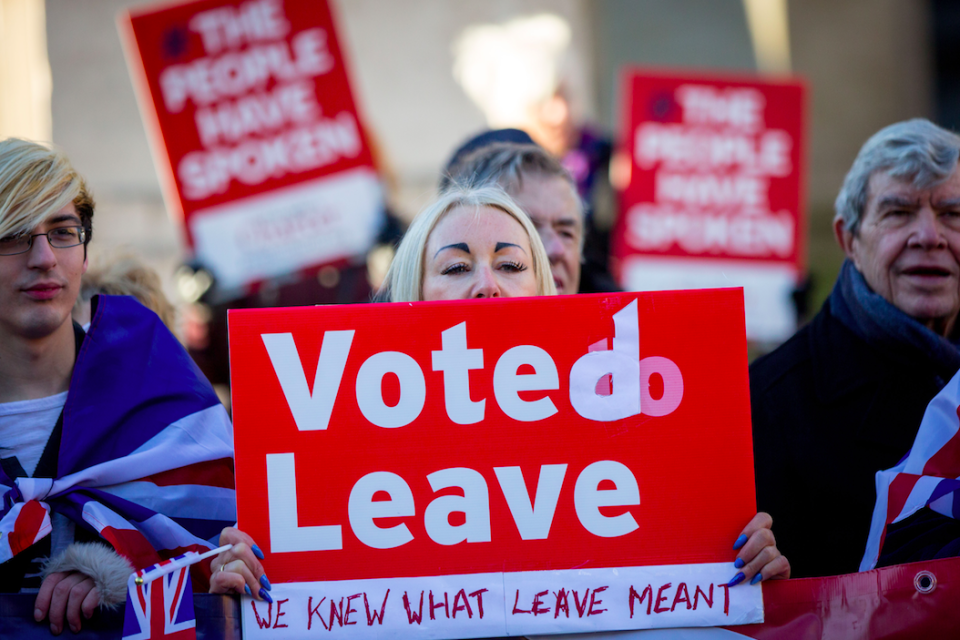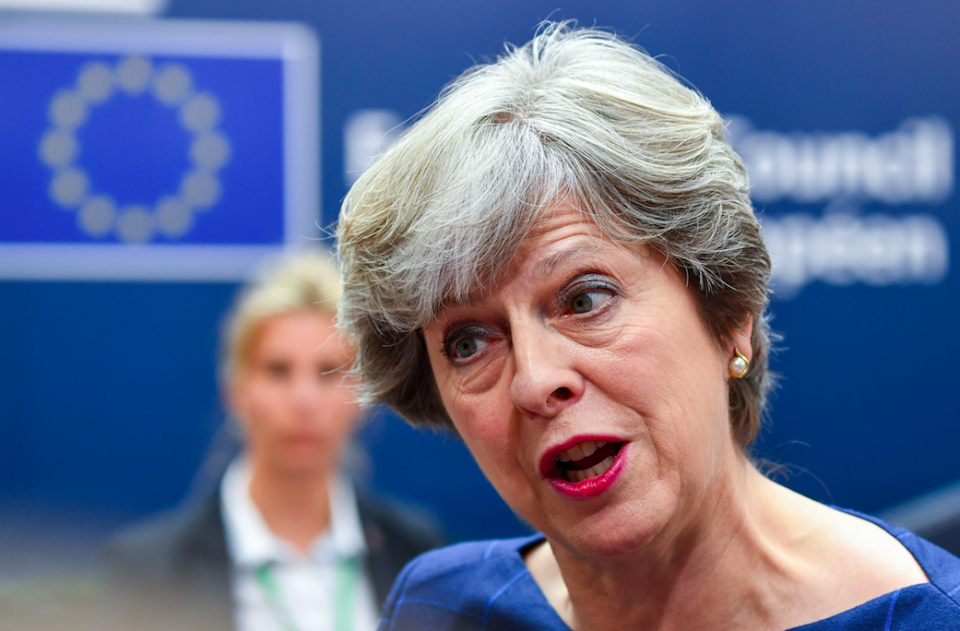Britain remains ‘utterly divided’ on Brexit, according to new research

New research has found that the British public remain deeply divided over Brexit – despite the calls for unity from Theresa May.
As was the case in the EU Referendum, deep divisions still exist between both Leave and Remain voters, with no consensus on what kind of Brexit should be sought.
Professor Roger Scully, a professor of political science at Cardiff University, said that Mrs May’s hope for unity across the board is not yet happening.
He said: “There is little sign of public consensus emerging on Brexit: we are not coming together, as the Prime Minister has suggested, but continue to be deeply divided.”
Research conducted by the university found that most Leave voters (78%) want the UK to regain full control of how Britain is governed, compared to 63% who still want to retain EU membership.


A majority of Remainers also felt they would be worse off after Brexit, compared to just 17% of Leavers, while 53% of those who voted for Brexit feel there will be no difference.
And on the topic of immigration – one of the main issues highlighted during the referendum – the majority of Leavers (70%) expect to see immigration fall, whereas only 30% of Remainers believe immigration will lower.
When asked what they would like to see happen once Brexit talks are concluded, there is again no consensus among voters.
Most popular on Yahoo News UK
Theresa May’s Brexit plan has left the UK ‘screwed’, says former ambassador
An embarrassing photo from 2016 has come back to haunt Hillary Clinton
North Korea’s nuclear bomb threat ‘should be taken literally’
Police ‘underestimated scale of disorder’ when travellers arrived in seaside town of Cromer
Here are some of the most outrageous JFK conspiracy theories
Most Leave voters thought that any agreement struck between the UK and EU should either be implemented immediately (40%) or implemented after a ratification vote in the UK parliament.
However, the majority of those who voted Remain in 2016 either wish for a second referendum to endorse an agreement (33%), or think that both the UK parliament and the devolved parliaments in Scotland, Wales and Northern Ireland should have to ratify any deal.
Alluding to the data, Professor Scully said that “few people are yet changing their minds” about how they voted – both in Wales and across the UK as a whole.

He said that Remainers are “overwhelmingly pessimistic”, while Leavers are “much more likely to take an optimistic view of the implications of Brexit”.
He told New Statesman: “As with the GB-wide polling, an overwhelming majority of Remain and Leave voters would still vote the same way if the referendum was repeated now.
“Wales, no more than the rest of the country, is not coming together as Theresa May hoped that we would.”
Professor Scully added: “Divisions persist far beyond how we would vote in any re-run of last year’s referendum, or even what – if any – sort of Brexit the UK should seek to negotiate…
“Remainers do not believe that post-Brexit the UK’s global influence will rise, or that more money will be available for the NHS; Leavers are much more sanguine.”

 Yahoo News
Yahoo News 

